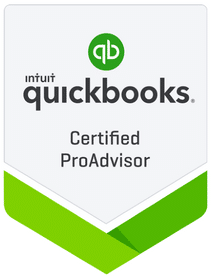- Patrick Roney
- (877) 503-8607
Follow Us :
Follow Us :
Proledge
October 17, 2024
In the current financial climate, the majority of Americans have a negative opinion about modern banking systems. Are you a company active in a competitive field, conducting your business in a sector where innovation thrives, and does your target audience have high expectations from the products and services offered? In such a case, your long-term success will be determined by the banking partnership you choose to establish. Are you interested in a services-driven relationship tailored to the subjective needs of your company? Do you want to avoid the services of legacy banks? In that case, you might be interested in collaborating with a private banking institution that is active locally.
Is your company growing at an accelerated pace, and do you need a wide range of comprehensive banking services? In such a scenario, the benefits of big banks are apparent. Larger banks often offer a more complex range of financial services than those provided by small-scale financial institutions. Plus, since they make use of already proven back-end technologies, large-scale institutions typically offer access to more complex digital banking tools. Do you want to partner with well-known banking institutions that probably have branches near your geographical location? Then, collaborating with a large bank is the way to go. Do you require more financial flexibility? If so, smaller financial institutions can be more advantageous.

The long-term growth of companies active in national markets can be correlated with their access to quality banking and bookkeeping services. Have you turned to the professional services offered by our financial recordkeeping company? You’ve made a great choice. However, you still need to make a choice between big banks vs. small banks and choose a financial institution that can integrate with your QuickBooks account. Selecting a bank is a necessity for market-active businesses, as in this day and age, long-term profitability can only be achieved through external funding and accurate financial recordkeeping aided via API QuickBooks integration.
What banking services are crucial for modern companies? First of all, you should look at the services of a bank, whether large or small, that offers multi-tiered account structures or the possibility to open accounts in different currencies. Big banks vs. small banks ultimately, it doesn’t matter as long as you can segregate funds for various investment purposes. On top of that, the bank you approach should utilize an online platform with API integration, offer ZBAs and SBAs, and integrate directly with your QuickBooks account. This last point, however, is one of the main reasons why collaborations with small banking institutions are not always a feasible option.
Do you require automated matching for your incoming transactions? Then, you might need to use the direct bank feeds offered by large private financial institutions. Big banks vs. small banks: what should you choose? Lately, more and more people are leveraging the services provided by small banks. However, if you require automated syncing services like DirectConnect, large banks are the best available option. Large financial institutions, such as JPMorgan Chase, simply have more capital at their disposal. As a result, they can more easily invest in advanced cash management tools and direct QuickBooks integration.
From the perspective of domestic assets, Wells Fargo is the third-largest commercial bank in the United States. Moreover, its DirectConnect QuickBooks integration is considered one of the best in the industry. What exactly is the Wells Fargo Direct Connect QuickBooks integration? In a nutshell, it is a comprehensive online service that allows private companies to sync their bank accounts and QuickBooks data in real-time.
Through DirectConnect, companies benefiting from an account set up with Wells Fargo can automatically sync their transactions into QuickBooks and perform financial payments directly from the platform, which are automatically reconciled in their bank account. This is different from WebConnect, which can be defined as a way to download transaction files. Direct Connect is an encrypted connection between your QuickBooks and Wells Fargo account, serving as a two-way communication channel through which your transactional data can be reconciled in real-time.
WebConnect, on the other hand, represents, in essence, a way through which your transactional data can be downloaded in the form of a QBO file and uploaded to your QuickBooks account. It is a manual process that requires your direct input. Our bookkeepers can help import this data into QuickBooks. However, as a recommendation, we encourage our users to pay the Direct Pay access fee of $10 per billing cycle and connect their banking account directly to QB.
You can contact us anytime if you have questions or encounter a problem with your bookkeeping program.
First of all, our employees can automate a significant portion of the financial recordkeeping processes that burden your staff’s workload. Our company will manage your firm’s transactional data, reconcile your transactional information with that recorded by your collaborating banks, and migrate some of your financial books from the online medium to the cloud. We will ensure that your financial statements are appropriately recorded and cataloged, collaborate with your payroll manager or CPA, and make your business compliant with the fiscal regulations active in the state of Texas.
How can our offerings help with the relationship you foster with collaborating banks? For one thing, by maintaining the accuracy of your financial data, our bookkeeping firm could make your organization more attractive for external funding and help you obtain credits at advantageous interest rates. Secondly, by performing regular audits of your past and current financial books, we will ensure there are no discrepancies between your numbers and the transactional data recorded by the banks you work with. We will continuously monitor your adherence to bank covenants, facilitate communication between your firm’s management and banking institutions, and create regular financial reports that can be presented to your bank.

To provide a quick answer, not really. The main advantage of small banks is the flexibility of loan structures and available financial solutions. Since they operate on a smaller scale, smaller banks typically provide financial services individually tailored to each business. Moreover, smaller banking institutions are usually aware of the local economic climate and can find alternative financing solutions for regional companies. Ultimately, it’s a matter of personal choice. Smaller banks provide more flexibility while being limited in their technological resources, while large banking institutions are more reliable but can be more stringent with their financial services.
Large banking institutions provide standardized services that are suitable for growth-focused companies looking for the best Internet banking integration in the industry. On top of that, large banks can typically offer more extensive financial help than smaller private financial institutions. Moreover, they usually provide products like multicurrency accounts, which are not usually found in the product offerings of small banks.
Do you require personalized services and a direct line of communication with a local financial partner? Are you looking for a quicker approval process for contracted services, and do you want to support businesses rooted in the local area? If so, a small bank is an option to consider. However, suppose QuickBooks integration and online banking are crucial for your venture’s success. In that case, you will probably have to collaborate with a legacy bank, such as Wells Fargo, Bank of America, or JPMorgan Chase.


Fill out the form below to sign up to our Blog Newsletter and we’ll drop you a line when new articles come up.

For many business owners, taking care of their business is like taking care of a baby. If you want a successful business, you need to always pay attention to the

Bookkeeping and accounting are words that are used interchangeably by most people. It’s true that both of these are about the financial management of your business, but in different ways.

It’s that time again! The tax season is slowly but surely coming to an end and that means you can’t postpone it anymore. You’ve got to figure it out. We

There are lots of businesses that need to find efficient ways to keep track of their finances nowadays, and if you are a business owner, you have experienced this first-hand.

As we all know, automated means of running your business have started to become very popular recently due to all of the perks that it provides. This is not to

So you’re at that point in developing your small business where you’re looking into accounting solutions. If so, you might have started to wonder what’s the best bookkeeping software for
Bookkeepers.
Professional. Affordable.
ProLedge is a bookkeeping services firm.
Copyright © 2024 All rights reserved.